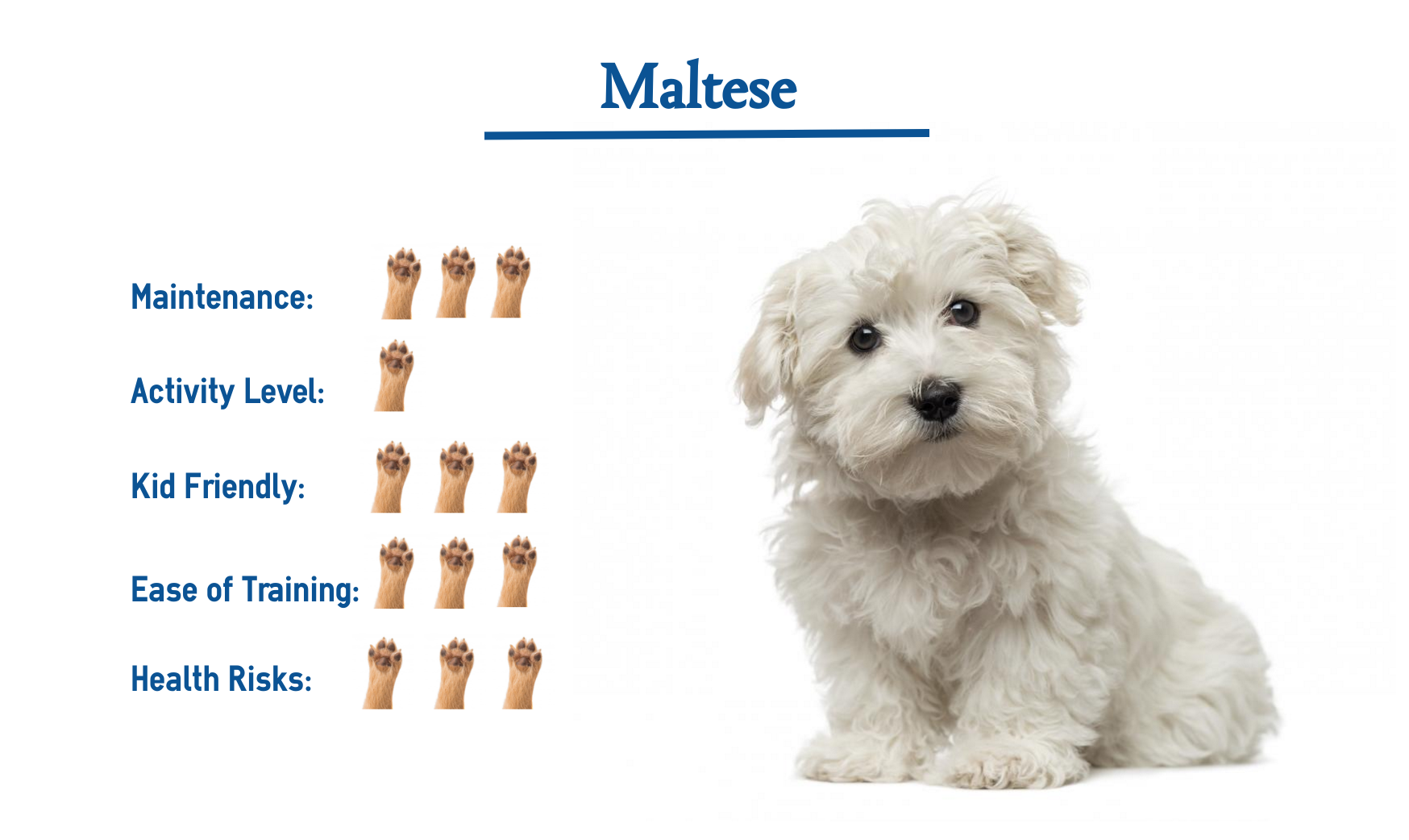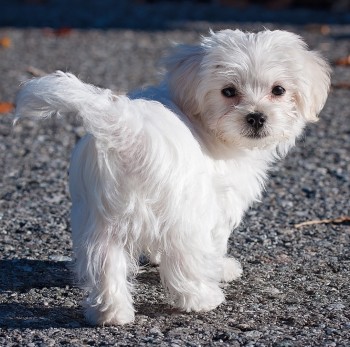Did you know that the Maltese breed is known for its high maintenance? These adorable little dogs may be small in size, but they require a lot of time, attention, and care to keep them looking their best.
The Maltese is a breed that originated over 2,000 years ago and has a long history of being pampered and adored by royalty and nobility. This breed’s luxurious, flowing coat requires frequent brushing and grooming to prevent mats and tangles from forming. In fact, the Maltese has one of the highest grooming needs compared to other dog breeds. On average, they need to be groomed every 4-6 weeks to maintain their coat’s health and appearance. If you’re considering a Maltese as a pet, be prepared to invest time and effort into their grooming routine and ensure regular visits to a professional groomer.

Is Maltese High Maintenance? A Comprehensive Guide
If you’re considering getting a Maltese as a pet, you may be wondering if they are high maintenance. In this article, we will delve into the world of Maltese dogs to determine their maintenance needs and shed light on what it takes to care for these adorable furry companions. From grooming to exercise, we’ll cover it all so you can make an informed decision about bringing a Maltese into your life.
Characteristics of Maltese Dogs
Before we delve into the maintenance needs of Maltese dogs, let’s take a moment to understand their general characteristics. Maltese dogs are small, toy-sized canines known for their beautiful white, silky coats and elegant appearance. They have a friendly and affectionate nature, making them popular companion dogs. However, it’s important to consider the unique characteristics of Maltese dogs when evaluating their maintenance requirements.
1) Grooming Needs
Grooming is a significant part of maintaining a Maltese’s appearance and overall health. Due to their long, silky coats, Maltese dogs require regular grooming to prevent matting and keep their fur free from tangles. Daily brushing is recommended to keep their coat in top condition and prevent the hair from becoming matted. In addition to regular brushing, Maltese dogs should also have their coats trimmed every six to eight weeks to maintain a manageable length. Regular grooming also helps to keep their skin healthy and their ears clean, reducing the risk of infections.
Additionally, keeping the hair around their eyes clear is essential to prevent eye irritation and infections. Many Maltese owners opt for regular visits to professional groomers who are experienced in handling their specific needs. Grooming a Maltese requires patience and skill, so if you’re considering getting one, make sure you are willing to invest time and effort into their grooming needs.
Furthermore, it’s essential to note that the white coats of Maltese dogs are prone to staining, especially around their faces. Special care should be taken to keep their fur clean and white, which may involve using specific dog-safe tear stain removers or implementing dietary changes to reduce tear staining.
2) Exercise Requirements
Despite their small size, Maltese dogs are energetic and require regular exercise to stay healthy and happy. While they don’t need as much exercise as larger breeds, daily walks and playtime are necessary to meet their physical and mental stimulation needs. Aim for at least 30 minutes of exercise each day, which can be divided into shorter sessions throughout the day.
Maltese dogs also enjoy interactive play with their owners, such as fetch or puzzle toys that challenge their minds. Engaging in physical activities and mental stimulation can help prevent behavior issues that may arise from pent-up energy. However, it’s crucial to consider your individual dog’s energy levels and adapt the exercise routine accordingly.
Keep in mind that Maltese dogs are indoor pets and should not be left outside for extended periods. They are sensitive to extreme weather conditions and prefer to be kept in a comfortable, controlled environment.
3) Health Considerations
While Maltese dogs are generally healthy, like any purebred dog, they may be prone to certain breed-specific health conditions. It’s important to be aware of these potential health concerns and stay proactive in managing their well-being. Here are some common health issues that may affect Maltese dogs:
- Patellar Luxation: This condition involves the displacement of the kneecap and can lead to lameness and discomfort. Regular vet check-ups can help diagnose and manage the condition.
- Dental Issues: Maltese dogs are prone to dental problems, including tooth decay and gum disease. Regular dental care, including brushing their teeth and providing dental treats, is essential.
- Respiratory Disorders: Due to their small size, Maltese dogs may be more susceptible to respiratory issues and respiratory infections. Good air quality and avoiding exposure to secondhand smoke are important.
- Eye Problems: Maltese dogs are prone to various eye issues, including excessive tearing, eye infections, and dry eyes. Regular eye cleaning and monitoring for any signs of discomfort are crucial.
Regular visits to the veterinarian, a healthy diet, and maintaining good hygiene practices can help prevent or manage these health concerns and ensure the overall well-being of your Maltese.
Key Takeaways: Is Maltese High Maintenance?
- Maltese dogs require regular grooming to maintain their long, silky coat.
- They need daily exercise, but their small size makes it easier to manage.
- Maltese dogs can be prone to dental issues, so regular teeth brushing is important.
- They are social dogs and thrive on attention and companionship.
- Training and socialization from a young age helps prevent behavior problems.
Frequently Asked Questions
Are you wondering if owning a Maltese dog is high maintenance? Read on to find answers to some common questions regarding the care and upkeep of Maltese dogs.
1. How much grooming does a Maltese dog require?
A Maltese dog has a glorious, long, white coat that requires regular grooming to keep it in top shape. Daily brushing is necessary to prevent mats and tangles from forming in their fur. Additionally, regular baths using a gentle dog shampoo are essential to keep their coat clean and healthy. Professional grooming every 4-6 weeks can also help maintain their coat and keep their appearance looking its best. It’s important to note that, despite their luxurious coat, a Maltese is considered a non-shedding dog, making them a good choice for individuals with allergies.
In addition to their coat, grooming also involves taking care of their nails, teeth, and ears. Regular nail trims are needed to prevent discomfort or injury, and teeth should be brushed regularly to maintain good dental hygiene. Similarly, their ears should be checked and cleaned regularly to avoid infection.
2. Do Maltese dogs require a lot of exercise?
Although Maltese dogs are small in size, they still require daily exercise to stay healthy and happy. Regular walks and playtime in a securely fenced area can help fulfill their exercise needs. However, it’s important to note that Maltese dogs have delicate bones, so high-impact activities or jumping from heights should be avoided to prevent injuries. Interactive play with toys indoors can also provide mental stimulation and exercise for these lively and intelligent dogs.
It’s worth mentioning that every dog’s exercise needs may vary, and it’s always a good idea to consult with a veterinarian to determine the appropriate exercise routine for your Maltese, taking into consideration their age, health, and individual requirements.
3. Are Maltese dogs prone to health problems?
Like any other dog breed, Maltese dogs have their own set of potential health issues. Some common health problems that can affect Maltese dogs include dental issues, luxating patella (kneecap dislocation), eye conditions, and allergies. Routine veterinary check-ups are crucial to monitor their overall health, identify any potential issues early on, and provide appropriate treatment.
Proper care and a healthy lifestyle can help minimize the risk of health problems in Maltese dogs. This includes feeding them a balanced diet, providing regular exercise, maintaining good dental hygiene, and ensuring they receive preventive care such as vaccinations and parasite control.
4. Do Maltese dogs get along well with children and other pets?
Maltese dogs are known for their friendly and affectionate nature, making them generally good companions for children and other pets when properly socialized. However, due to their small size, they can be more susceptible to injury if mishandled or played with too roughly, so supervision is essential when they interact with young children. Additionally, like any dog, proper introductions and gradual socialization can help ensure positive relationships with other pets in the household.
It’s important to note that every dog has its own unique personality, and some individual Maltese dogs may be more or less tolerant of certain situations or interactions. Early socialization, positive reinforcement training, and creating a safe environment are key factors in fostering good relationships between Maltese dogs, children, and other pets.
5. Are Maltese dogs suitable for apartment living?
Maltese dogs are well-suited for apartment living due to their small size and moderate exercise requirements. They can adapt well to living in smaller spaces as long as they receive regular exercise and mental stimulation. Their non-shedding coat also makes them a good choice for individuals living in apartments or houses with limited ventilation.
However, it’s important to note that Maltese dogs are social animals and require companionship. Regular interaction with their owners, as well as mental stimulation through play or puzzle toys, is essential to prevent boredom and separation anxiety. While apartment living can be suitable for Maltese dogs, it’s important for owners to create a stimulating and comfortable environment to ensure their well-being.

Summary
Maltese dogs can be high maintenance due to their long, silky fur that needs regular grooming. They require daily brushing to prevent matting and regular professional grooming to maintain their coat. However, their small size makes them easier to handle compared to larger dog breeds.
Additionally, Maltese dogs may need extra attention when it comes to dental care because they are prone to dental issues. They need regular teeth brushing and annual dental check-ups. Despite their high maintenance needs, Maltese dogs are loyal, friendly, and make great companions for those who are willing to put in the effort to care for them properly.
